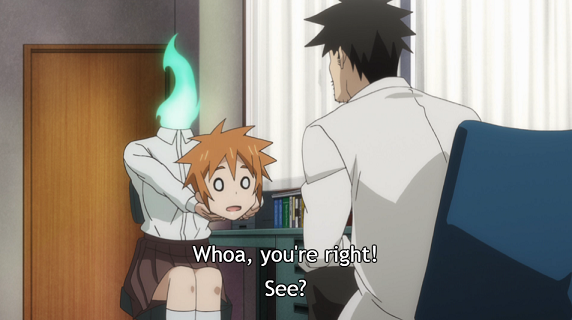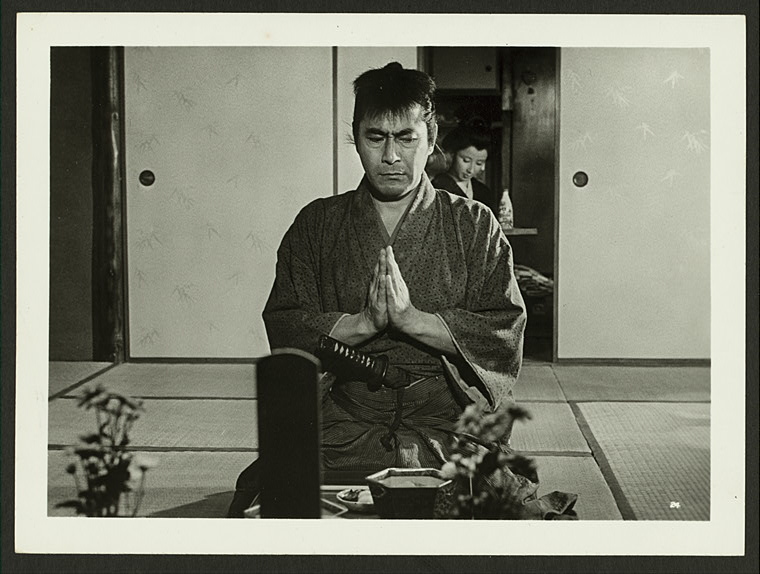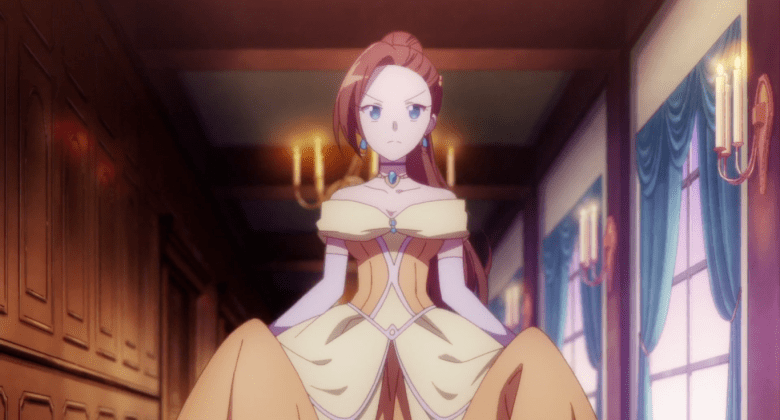
All knowledge is a matter of faith. You trust that I offer something worth your time and thought. I trust that you understand the words and my logic. We trust what we’ve been taught by our parents and teachers, and we trust our own judgment when we distrust information. Likewise, we have faith that we can understand the world through our own senses, that reality is understandable.
We also have faith that the information we recall is reasonable accurate. In short, faith is the ground of all knowledge. We need to have faith in the consciousness of others, ourselves, and in the nature of reality. Even the process of science builds on faith: faith that patterns can be seen, faith that the process of testing ideas and knowledge works.
None of this is ground breaking, of course. And it may seem odd to you (unless you are a long time reader) that a blog about anime would delve into philosophy. However, knowing knowing underpins everything. Without understanding how to know and the nature of the faith behind knowing, we can be deceived and manipulated. Often, I see those who state they are “independent thinkers” parrot word-for-word the weekly talking-points of political media. They fail to understand how they come to know. They fail to understand the problems of confirmation bias, logical fallacies, and the role of trust.
Some years ago, I overheard two elderly men discussing how the United States is falling into socialism. They were likely exposed to the Red Scare propaganda period in American history. They then complained about how slow their Social Security checks were deposited. Social Security, for our foreign readers, is the retirement system of the US government. The men failed to understand that Social Security was a result of small socialism movements in the US. What struck me the most at the time was the language the men used. They were using the exact verbiage of Fox News and other outlets at the time.
The illustration brings me to my point: what ideas we consume and trust forms our knowledge. While this should be obvious, confirmation bias–the habit of seeking information that only confirms what we already know–plays a role. This leads to logical fallacies that protect our faith in our knowledge. You see, when knowledge is challenged and when that knowledge is a part of identity, our faith is also challenged. Remember, faith is the foundation of all knowledge. An attack on a person’s knowledge can shatter the faith in who that person believes ichi is.

You see this in the anime community. A threat to what a weeb (if you allow me to use the label) knows threatens ichi’s sense of self because it rolls down to that foundation of faith. It threatens the Self. Such challenges to foundational knowledge, or faith, washes the foundation of identity.
Knowledge is not you and the bedrock faith of knowledge has nothing to do with the Self. The bedrock faith of knowledge lies on the trust we can know reality through the experiences of others or our own experiences. That knowledge is separate from your consciousness. That knowledge influences your consciousness, but you still choose what to hold close and what to discard. Who you are sits on that choice, which means change and choice are what the Self is. Experiences can be based on reality or a misconception of reality (which sees itself as correct). However, this changeability seeks to confirm the faith knowledge sits upon.
For example, consider the heliocentric model of the solar system. For much of Western history, the earth sat in the center of the universe. It was confirmed by observations of how stars and planets appear to rotate around the Earth. However, Copernicus and Galileo and others showed how this was a misconception. This proof, in turn, confirmed the faith that reality is knowable. All of this is separate from the Self. At the time, many Christians viewed the heliocentric model a threat to their identity. It denied their interpretation of the Bible. In short, their knowledge.
Self and knowledge must be separate. This is the first step to knowing how to know. When Self and knowledge remain separate, you can discard knowledge and gain new knowledge without threatening your faith in reality or who you are. This holds even for your most foundational values. I learned this lesson during the faith crisis I experienced in my early-to-mid twenties. I had attached my Self to my interpretation of Christianity. Of course, this is a normal habit for any foundational system. However, when life circumstances and my own Bible studies shattered my interpretation, my concept of Self shattered with it. I still don’t remember much from that 8 month period of depression. However, when I emerged from it, thanks to Zen I have to add, I was a stronger Christian. I learned to separate the Self from knowledge. Of course, I have to remind myself of this lesson on a regular basis. Confirmation bias, logical fallacies, and all the other faults of human psychology remain with me.
The lesson I learned extends to those who identify as anything: weeb, otaku, Muslim, Christian, Jew, Buddhist. It doesn’t matter. We are all mistaken in our knowledge. I now find this exciting. A day where I don’t question what I know is a wasted day. Identity is merely knowledge, and the Self is the ability to choose and discern reality. However, that Self is influenced by what it consumes, just like those older gentlemen who complained about their Social Security, just like myself. According to Zen, it is best not to identify with anything at all. This neutrality helps you avoid the faults of human psychology, but it is also an impossible ideal. The ego aspects of the Self wants to identify with something in order to validate itself, be it a sexual preference, an anime, or a religion, or a sports team. Again, identifying with something is different from knowing.

As Musashi wrote: “In all things, have no preference.”
Remaining agnostic toward everything, or at least being able to temporarily be agnostic toward important ideas, is the first step to learning how to learn. It allows you to hold two conflicting ideas at the same time. And sometimes both ideas are valid. Knowledge often gets in the way of knowledge. A full cup can’t be filled more.
So to answer the question: how do you learn how to know?
- Don’t identify with knowledge.
- Consciously choose knowledge.
- Be mindful of your confirmation bias.
- Have no preference; be agnostic toward knowledge.




Well stated. And I get what you’re saying. From a psychological perspective, I suggest Robert Burton’s, “On Being Certain.” But do you think it’s actually possible to interpret the world or experience without some assumptions through which to filter our interpretations? There isn’t much that one can know with certainty without descending into solipsism.
The assumption of an external “reality” is an intrinsically subjective response to experience, largely reflexive, if not at least primed. Conversely, we can imagine things, or even hallucinate and *know* that it’s not “real”. If we don’t, it’s either access to direct knowledge, or else a psychotic episode. The power of an internally meditative approach is consequently to recognize the subjective nature of these assumptions… to allow for skepticism.
Regardless, if we accept the assumption that we are indeed a part of some greater, objective existence, then we also have to acknowledge and respond to our experiences. Quoting Max Planck, “Modern Physics impresses us particularly with the truth of the old doctrine which teaches that there are realities existing apart from our sense perceptions, and that there are problems and conflicts where these realities are of greater value for us than the richest treasures of experience.”
“But do you think it’s actually possible to interpret the world or experience without some assumptions through which to filter our interpretations?”
Zen and some branches of Christianity would answer yes, but removing our filters proves difficult.As you wrote, the goal is to recognize our subjective filtering of objective reality and how we likely can only ever see objective reality through a pinhole in our filters. Our brains, after all, were formed through our experiences and through human evolution (both the larger species evolution and through smaller cultural evolution). Because of this, our brains have limits on what they can understand and our senses have limits to what they can ingest. We can’t smell as well as dogs or hear ultrasonic sound, but these are objective realities and subjective realities for dogs and bats.
I trust there’s an objective reality that we can, at least in a tiny fragment, come to understand. But for most of us, we will mistake our filtered reality for objective reality and so remove our ability to see the fragment of reality available to us. Much of our problems as humans is because we mistake our thoughts and perceptions as real instead of seeing them as a faulty interpretation of external and internal truth.